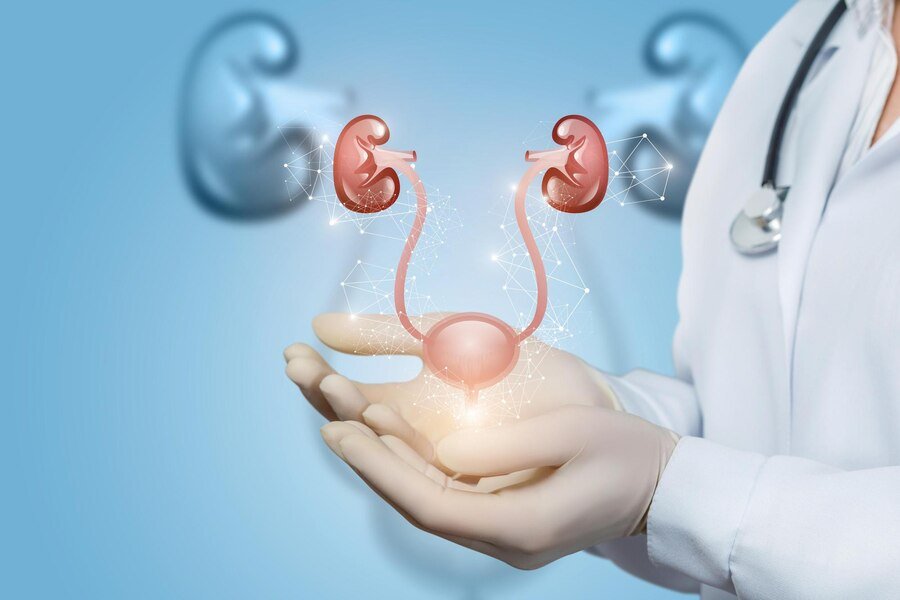Welcome to Our Urology Department
Urology is a branch of medicine that focuses on the surgical and medical diseases of the male and female urinary-tract system and the male reproductive organs. Urologists are specialized doctors who diagnose, treat, and manage patients with urological disorders. The organs under the domain of urology include the kidneys, adrenal glands, ureters, urinary bladder, urethra, and the male reproductive organs (testes, epididymis, vas deferens, seminal vesicles, prostate, and penis).

Scope of Services
Urology encompasses a wide variety of conditions that affect the urinary system and male reproductive system. Some of the primary areas of focus include:
- Urinary Tract Infections (UTIs): Infections affecting any part of the urinary system, often requiring medication and, in some cases, surgery.
- Kidney Stones: Small, hard mineral deposits that form inside the kidneys, often causing severe pain. Treatment can range from pain management and hydration to more invasive procedures like lithotripsy or surgery.
- Bladder Issues: Including overactive bladder, urinary incontinence, and bladder cancer. Treatments vary from medications and physical therapy to surgical interventions.
- Prostate Conditions: Such as benign prostatic hyperplasia (BPH), prostatitis, and prostate cancer. Management strategies include medication, minimally invasive therapies, and surgery.
- Male Infertility: Assessment and treatment of problems that prevent a man from conceiving a child with his partner. Treatments may include medication, surgery, or assisted reproductive technologies.
- Erectile Dysfunction (ED): The inability to get or keep an erection firm enough for sexual intercourse. Treatment options include medication, lifestyle changes, or surgery.
- Urologic Oncology: Dealing with cancers of the urinary system and male reproductive system, including bladder, kidney, prostate, and testicular cancer. Treatment may involve surgery, radiation therapy, chemotherapy, or a combination of these.
Diagnostic and Treatment Modalities
Urologists use a variety of diagnostic tests to identify the specific urological condition, including:
- Urinalysis: Laboratory examination of urine for various cells and chemicals, such as red blood cells, white blood cells, infection, or protein.
- Blood Tests: To check for signs of disease or dysfunction that can affect the urinary system.
- Ultrasound: Uses sound waves to produce images of the organs within the urinary system.
- Cystoscopy: A procedure that allows the urologist to see inside the bladder and urethra with a camera.
- Urodynamic Testing: Measures the pressure and volume inside the bladder to evaluate its functioning.
Treatment options in urology vary widely depending on the condition. They can range from conservative management, such as lifestyle modifications and medication, to advanced surgical procedures. Minimally invasive surgery, including robot-assisted laparoscopic surgery, has become increasingly common in urology, offering patients shorter recovery times and less postoperative pain.
Subspecialties within Urology
Urology encompasses several subspecialties, allowing urologists to focus on particular types of conditions or treatments:
- Endourology: Focuses on the closed manipulation of the urinary tract, often using instruments like endoscopes.
- Urologic Oncology: Specializes in treating cancers related to the urinary system.
- Neurourology: Manages urinary problems due to nervous system abnormalities.
- Pediatric Urology: Deals with urologic disorders in children.
- Andrology: Focuses on male health, particularly relating to problems of the male reproductive system and urological issues that affect men.
- Female Urology: Specializes in treating conditions of the female urinary system and reproductive tract.
The Role of a Urologist
Urologists play a crucial role in both the diagnosis and treatment of a wide range of conditions. They work closely with patients to develop individualized treatment plans that address the specific needs and health issues of each patient. Urologists often collaborate with other specialists, including oncologists, nephrologists, and gynecologists, to provide comprehensive care for patients with complex conditions.
Conclusion
Urology is a vital field of medicine that addresses important aspects of health and well-being for both men and women. Through a combination of sophisticated diagnostic tools and advanced treatment options, urologists help patients manage and overcome a wide range of urological conditions, improving their quality of life and overall health.
Our Doctor

Dr Rajesh Ahlawat
Urologist
Renal Science
MBBS, MS (Surgery), MNAMS (General Surgery), M.Ch (Urology)
